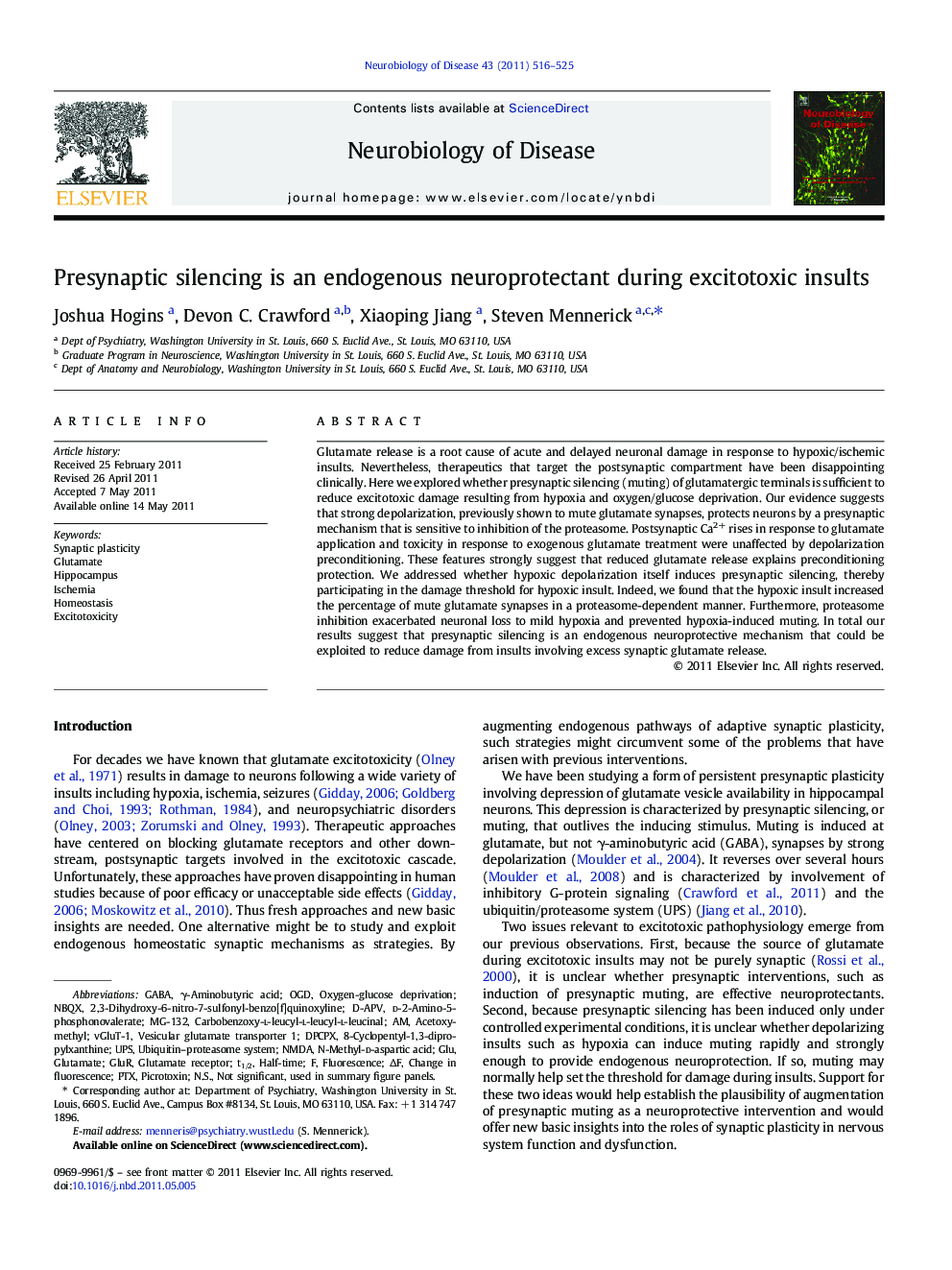| Article ID | Journal | Published Year | Pages | File Type |
|---|---|---|---|---|
| 3069675 | Neurobiology of Disease | 2011 | 10 Pages |
Glutamate release is a root cause of acute and delayed neuronal damage in response to hypoxic/ischemic insults. Nevertheless, therapeutics that target the postsynaptic compartment have been disappointing clinically. Here we explored whether presynaptic silencing (muting) of glutamatergic terminals is sufficient to reduce excitotoxic damage resulting from hypoxia and oxygen/glucose deprivation. Our evidence suggests that strong depolarization, previously shown to mute glutamate synapses, protects neurons by a presynaptic mechanism that is sensitive to inhibition of the proteasome. Postsynaptic Ca2+ rises in response to glutamate application and toxicity in response to exogenous glutamate treatment were unaffected by depolarization preconditioning. These features strongly suggest that reduced glutamate release explains preconditioning protection. We addressed whether hypoxic depolarization itself induces presynaptic silencing, thereby participating in the damage threshold for hypoxic insult. Indeed, we found that the hypoxic insult increased the percentage of mute glutamate synapses in a proteasome-dependent manner. Furthermore, proteasome inhibition exacerbated neuronal loss to mild hypoxia and prevented hypoxia-induced muting. In total our results suggest that presynaptic silencing is an endogenous neuroprotective mechanism that could be exploited to reduce damage from insults involving excess synaptic glutamate release.
Research highlights► Depolarization protects neurons from hypoxia by presynaptic muting. ► Hypoxia itself mutes glutamate synapses as a self defense mechanism. ► Proteasome dependent muting could represent a therapeutic target.
